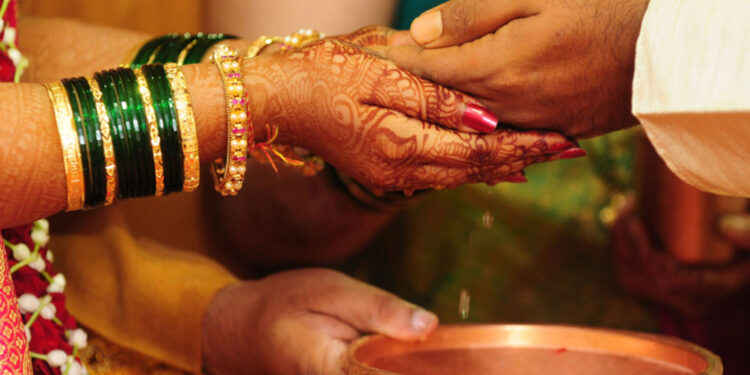The Allahabad High Court has clarified that the ‘Kanyadan’ ceremony is not a mandatory ritual for the valid solemnization of a Hindu marriage under the Hindu Marriage Act. The court’s observation came during a revision plea filed by Ashutosh Yadav challenging a Sessions Court order in Lucknow.
The plea sought to recall two prosecution witnesses (PWs) in a criminal trial under Section 311 of the Criminal Procedure Code (CrPC) due to alleged contradictions in their statements. The revisionist argued that these contradictions needed clarification, particularly regarding the performance of the Kanyadan ritual.
However, the High Court, after careful consideration, noted that the discrepancies in the witness statements and the issue of the Kanyadan ceremony were not crucial for deciding the case. Referring to Section 7 of the Hindu Marriage Act, which outlines essential marriage ceremonies, the court reiterated that the Act only mandates the ‘saptpadi’ ceremony and does not require Kanyadan for a valid Hindu marriage.
The Court emphasized that its power under Section 311 CrPC to summon witnesses should be exercised judiciously and only when essential for a fair trial. In this case, since the Kanyadan ceremony’s performance was not pivotal to the case’s decision, the court upheld the trial court’s decision to reject the plea to recall witnesses and dismissed the revision petition.
The case is titled Ashutosh Yadav vs. State Of U.P. Thru. Prin. Secy. Home Deptt. Lko. And Another 2024 LiveLaw (AB) 215 [CRIMINAL REVISION No. – 296 of 2024].

















